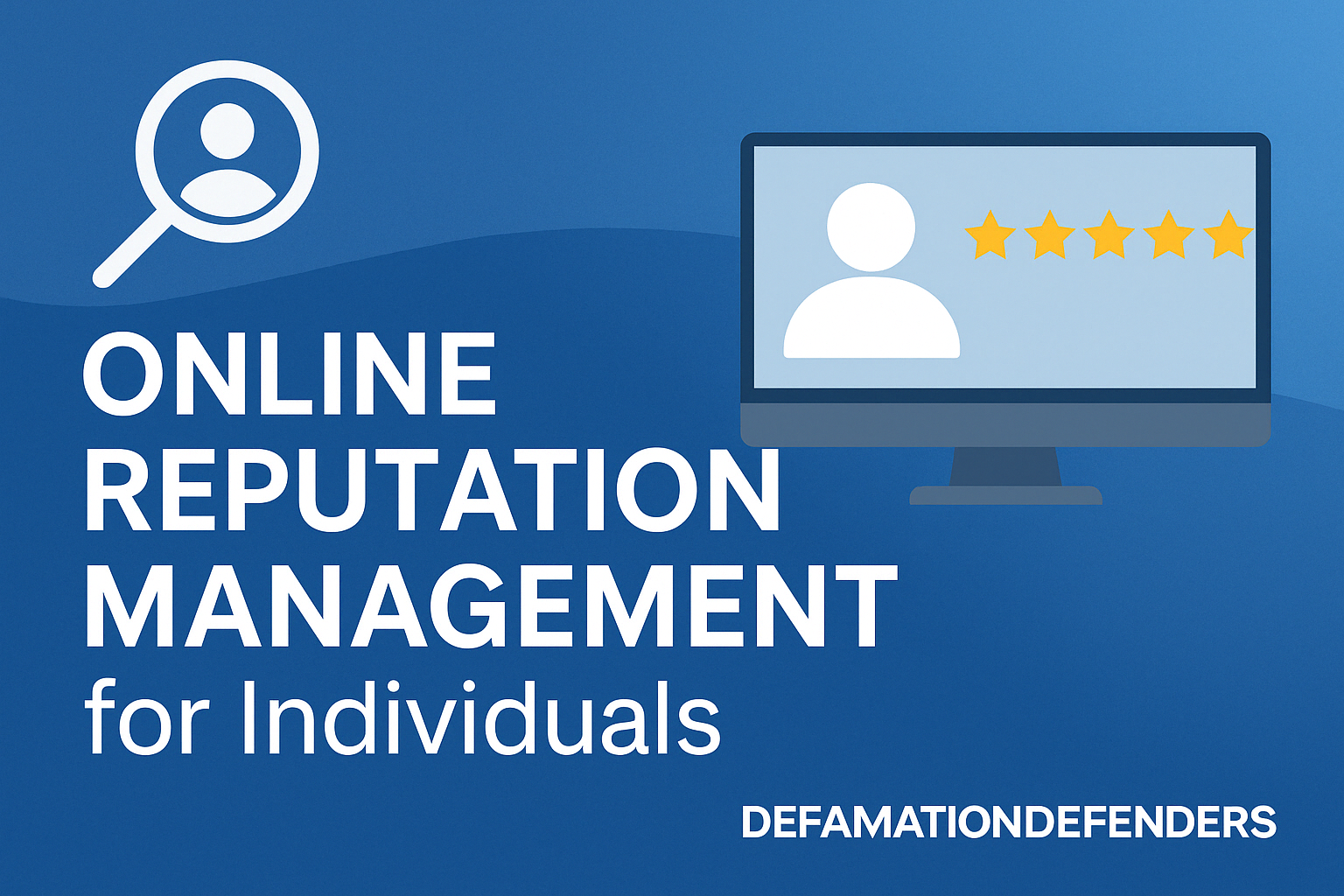Estimated reading time: 5 minutes
In an age where search engines act as the first impression for everything, managing your personal online reputation is critical. Whether you’re a job seeker, a college applicant, a public figure, or someone looking to distance themselves from past mistakes, your online image can significantly impact your opportunities. This comprehensive guide explores proven strategies, tools, and professional services designed to protect and improve your individual reputation.
Table Of Content
Why Your Personal Online Reputation Matters
A single Google search can influence decisions about you:
- Employers may deny job offers based on negative results
- Prospective dates might judge you before meeting
- Schools and scholarship committees regularly search applicants
- Clients and business partners assess your credibility online
What shows up about you online isn’t just about vanity—it’s a fundamental part of your personal safety, professional identity, and future.
How People Find Information About You
Understanding how information surfaces online is essential. Here are the main sources:
- Search Engines: Google, Bing, and Yahoo index publicly available info
- Social Media Platforms: Facebook, Instagram, Twitter/X, TikTok
- Data Broker Sites: Spokeo, Whitepages, MyLife
- News Articles and Blogs: Past mentions in media or forums
- Public Records: Court documents, property info, voter records
Common Threats to Your Online Reputation
Managing your personal reputation online means proactively addressing these risks:
- Embarrassing or inappropriate social media content
- Arrest records or mugshots
- Revenge porn or non-consensual images
- Fake profiles or impersonation
- False accusations or defamatory statements
- Old forum posts or outdated blog content
- Leaked data from breaches
Action Plan: How to Take Control of Your Personal Online Reputation
1. Google Yourself
Start by searching your name in various formats:
- Full name with quotes
- Name + city or state
- Name + profession or keywords
Take screenshots of negative results and keep a log.
2. Audit Your Social Media
Use tools like Jumbo Privacy or conduct a manual audit. Delete or privatize posts that may be seen as:
- Politically divisive
- Overly personal or explicit
- Profane, angry, or controversial
Set privacy settings to “friends only” where appropriate.
3. Remove Unwanted Content
Contact Webmasters:
If a harmful image or article appears on a website, reach out to the site owner directly. Use a polite and clear takedown request.
File DMCA or Legal Complaints:
If the content is copyrighted or defamatory, you can file:
- DMCA takedown notices
- Google removal requests
- Legal action through privacy or defamation laws
4. Suppress Negative Results
When content can’t be deleted, suppression becomes key. Strategies include:
- Creating and optimizing personal websites
- Publishing positive blog content or press releases
- Getting featured in reputable media outlets
- Building social media profiles with consistent updates
Use SEO strategies to ensure this content ranks higher than negative entries.
5. Use Individual Reputation Management Services
For more complex cases, professional help makes a difference. Defamation Defenders offers tailored strategies that include:
- Search result suppression
- Mugshot removal
- Content takedown services
- Personal brand building
- Legal support when needed
Get started today with a free consultation.
Tips for Long-Term Reputation Health
- Secure Your Name: Buy yourname.com and claim social handles
- Keep Content Clean: Think before you post or comment publicly
- Monitor Continuously: Set up Google Alerts with your name
- Avoid Oversharing: Be mindful of what info you post on forums or community platforms
Online Reputation and Legal Rights
You may have the right to request removal of content in these situations:
- You are underage in the content
- It qualifies as revenge porn or is sexually explicit
- The material is defamatory and untrue
- It violates privacy or copyright laws
Learn more at EFF’s Online Privacy Resources.
Best Tools for Personal Reputation Management
- BrandYourself: Track and fix Google results
- DeleteMe: Removes personal info from data broker sites
- Canva: Create branded profiles and positive content
- Hootsuite: Manage and schedule social posts
- Wayback Machine: Check old versions of harmful pages
Real-Life Case Study
Scenario: A professional speaker had an ex-partner publish a false Reddit thread that began ranking on Google.
Steps Taken:
- Filed DMCA for screenshots and images
- Created blog posts on Medium and Substack
- Interviewed with local press and podcast
- Worked with Defamation Defenders to suppress the Reddit page
Results:
- Negative content pushed off the first two pages in under 90 days
- Increase in client inquiries by 40%
How Defamation Defenders Can Help You
We offer:
- Full personal audit and content analysis
- Court record suppression and content removal
- Review management and profile rebuilding
- SEO-driven personal brand development
- Crisis response services
🔒 Take control of your online image today. Schedule a free case review with our expert team.
FAQ
You can submit requests using Google’s content removal tool. Legal and privacy-based claims have the highest success rate.
Yes. Many states now have laws limiting mugshot publications. Defamation Defenders also offers mugshot removal services.
Yes. Reputation management professionals specialize in removing or suppressing negative results for individuals.
This is illegal in most states. Document the content, report it, and seek legal advice immediately.
Most cases take between 30-90 days depending on the severity and the authority of the harmful content.
Related Contents:
Works Cited (MLA Format):
- Google. “Remove Outdated Content.” https://support.google.com/websearch/troubleshooter/3111061
- Electronic Frontier Foundation. “Online Privacy.” https://www.eff.org/issues/privacy
- Lumen Database. “DMCA Takedown Notices.” https://www.lumendatabase.org/topics/3
- BrandYourself. “Online Reputation Tools.” https://brandyourself.com/
- Jumbo Privacy. https://www.jumboprivacy.com/
- Hootsuite. “Social Media Management.” https://www.hootsuite.com/



